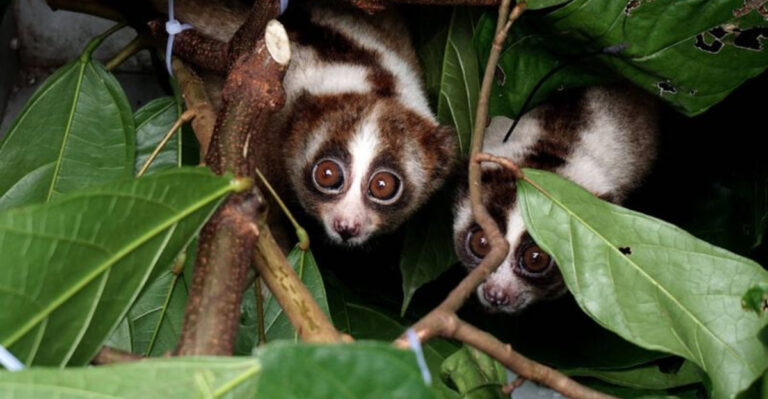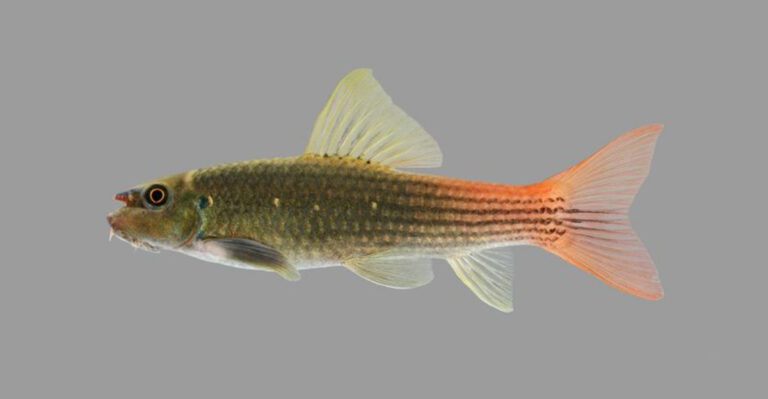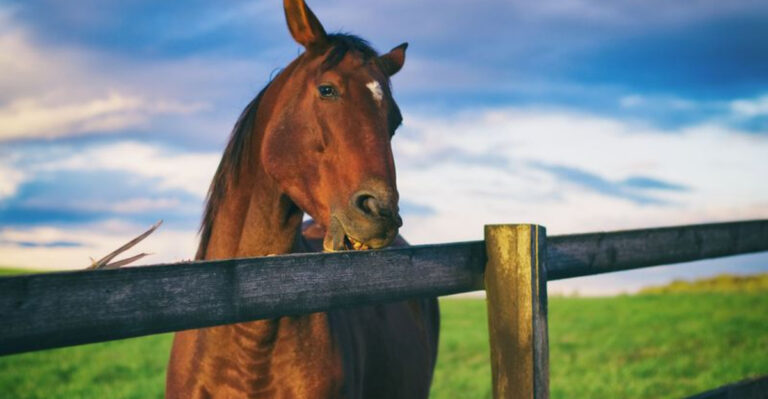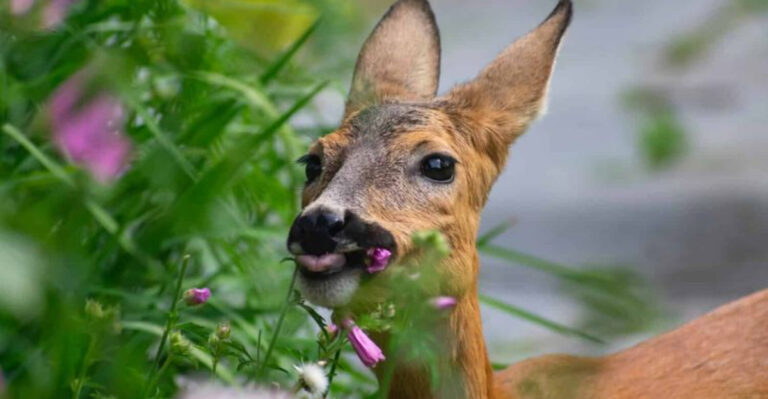14 Reasons Bees Are Still The Tiny Heroes Behind Most Of Your Food
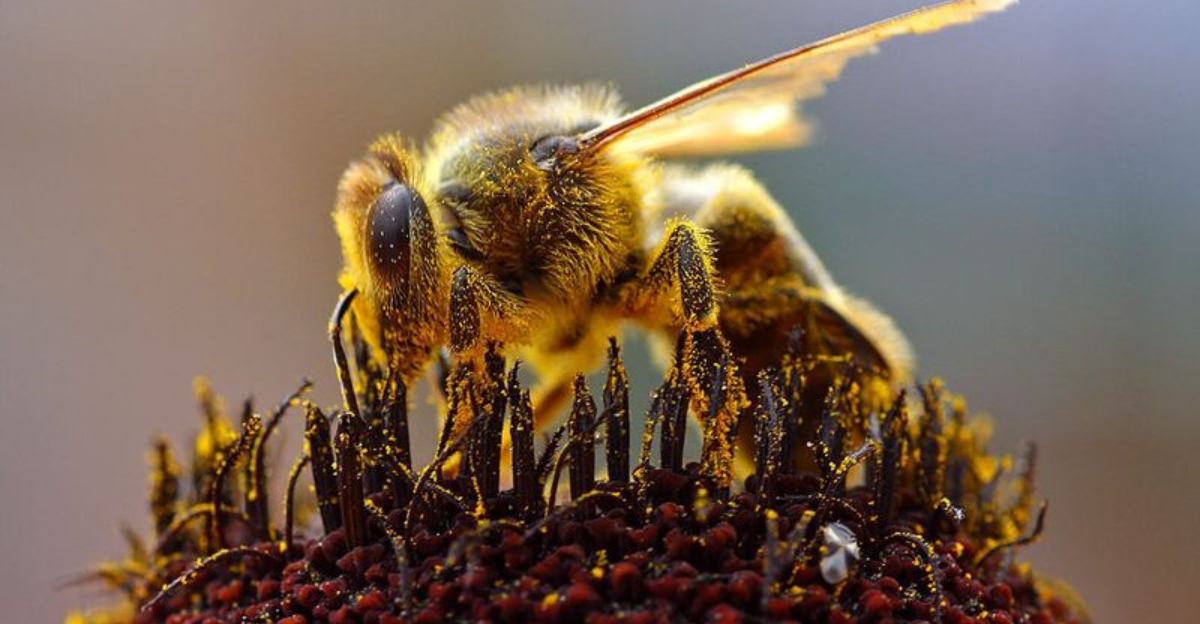
Have you ever thought about where your favorite fruits and vegetables come from? Sure, farmers grow them, but there’s a tiny workforce making it all possible – bees!
These buzzing insects might seem small, but they’re actually responsible for pollinating about one-third of the food we eat every day. Without these little heroes, our plates would look very different and much emptier.
1. Pollination Champions
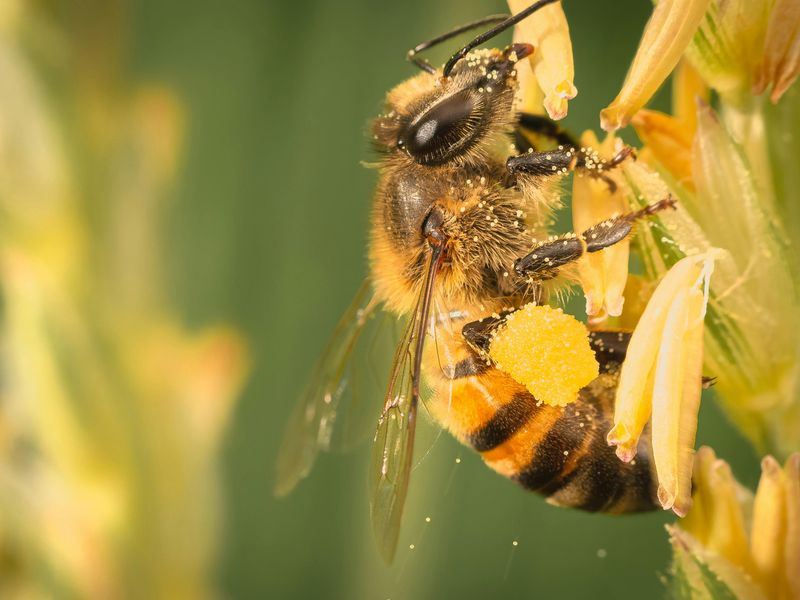
Bees visit over 7 million flowers daily to collect nectar, accidentally transferring pollen between plants along the way. This accidental pollen transfer is what helps plants reproduce and create the fruits and vegetables we love.
A single honeybee colony can pollinate up to 300 million flowers each day. Their tiny bodies are perfectly designed for carrying pollen, with special hair that static electricity clings to.
2. Breakfast Makers
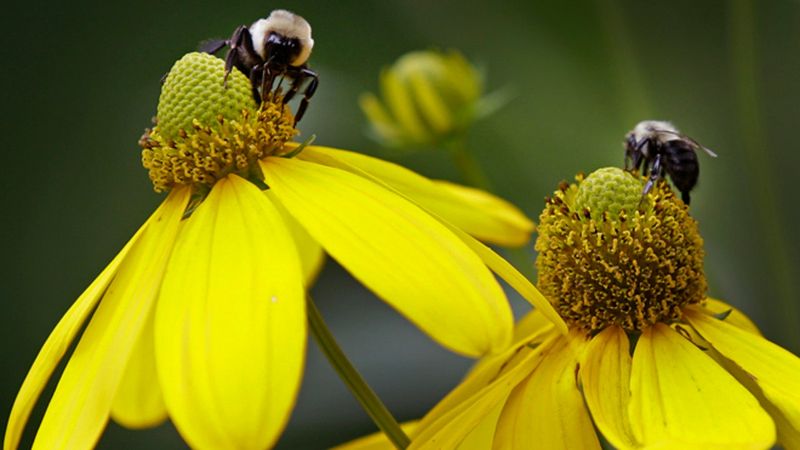
Your morning routine depends on bees more than you realize. That coffee waking you up? Bees helped those coffee plants produce beans. The berries in your yogurt? Bee-pollinated. Even the almonds in your granola needed bees.
Without bee pollination, breakfast would become a sad affair with many favorite foods disappearing from your table or becoming incredibly expensive luxury items.
3. Chocolate Saviors
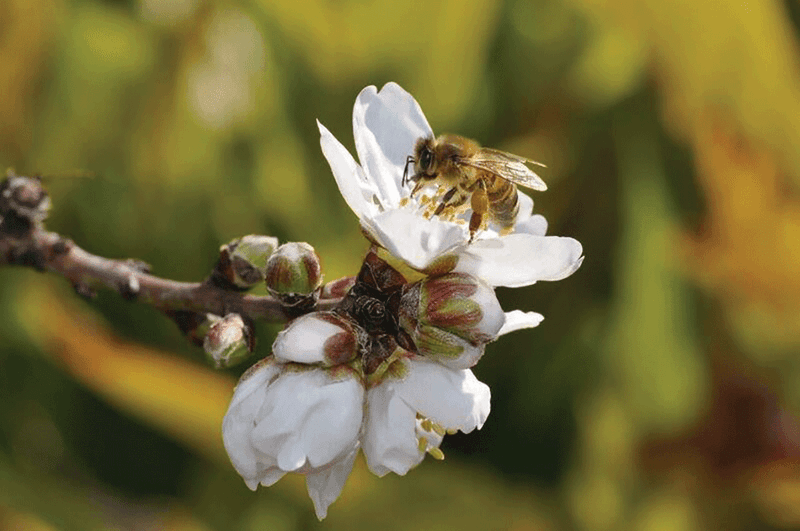
Chocolate lovers, thank a bee! Cacao trees rely on tiny midges and other insects including certain bee species for pollination. Without these pollinators, chocolate production would plummet worldwide.
The cacao flower is so complex that only specific insects can navigate its structure properly. When bee populations decline in cacao-growing regions, farmers see immediate drops in their chocolate yields.
4. Economy Boosters
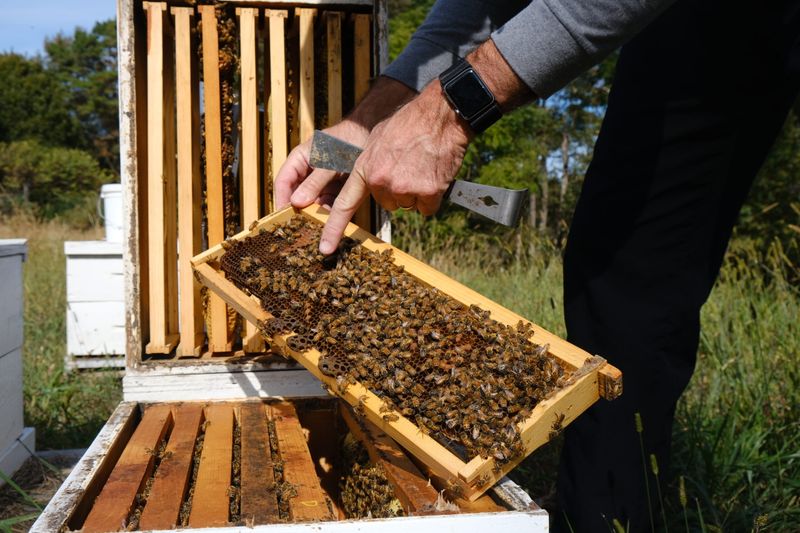
Bees contribute over $15 billion annually to U.S. crop values alone! Their pollination services affect 75% of crops worldwide, making them essential economic contributors.
Farmers often rent honeybee colonies to ensure their crops get pollinated properly. Without this service, many farms would face devastating financial losses and food prices would skyrocket for consumers everywhere.
5. Avocado Enablers
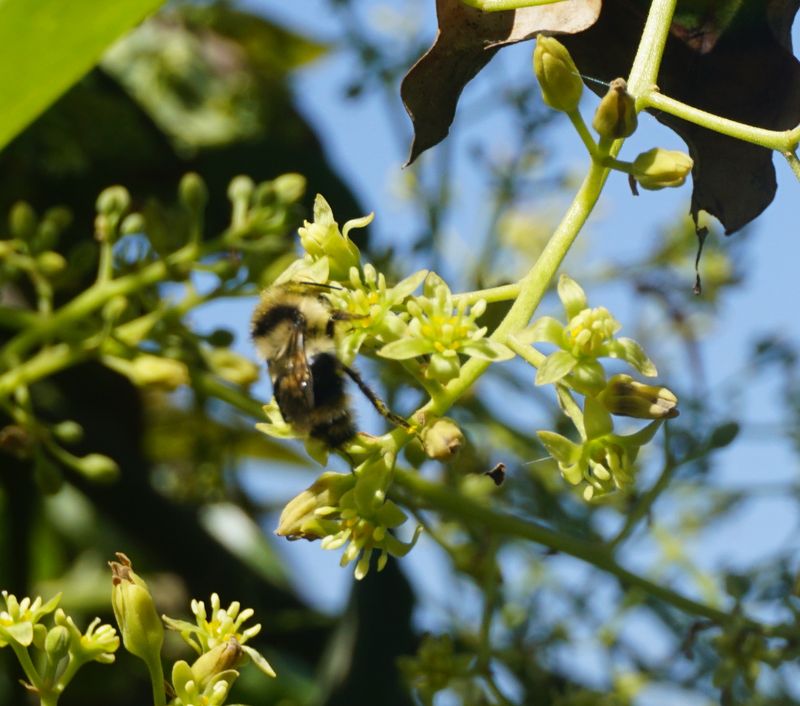
Craving guacamole? Thank a bee! Avocado trees depend heavily on bee pollination to produce fruit. The flowers open as female one day and male the next, making bee visits crucial for successful pollination.
California avocado growers often place beehives throughout their orchards during flowering season. Without these pollination partners, avocado production would drop by approximately 90% – making your toast topping much harder to find!
6. Medicine Makers
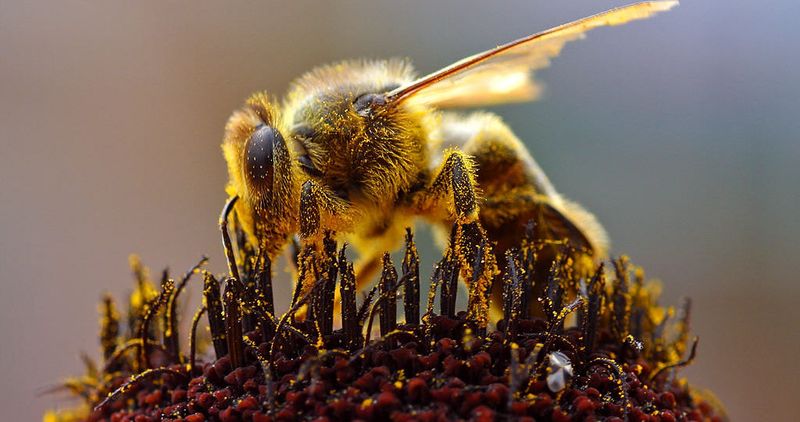
Many medicinal plants rely on bee pollination to reproduce. Plants like echinacea, foxglove (source of digitalis for heart medicine), and numerous herbs need bees to continue existing in abundant numbers.
Bees also produce propolis, a resin-like material with antimicrobial properties used in some medicines. Royal jelly, another bee product, appears in numerous health supplements and treatments worldwide.
7. Cotton Clothes Connection
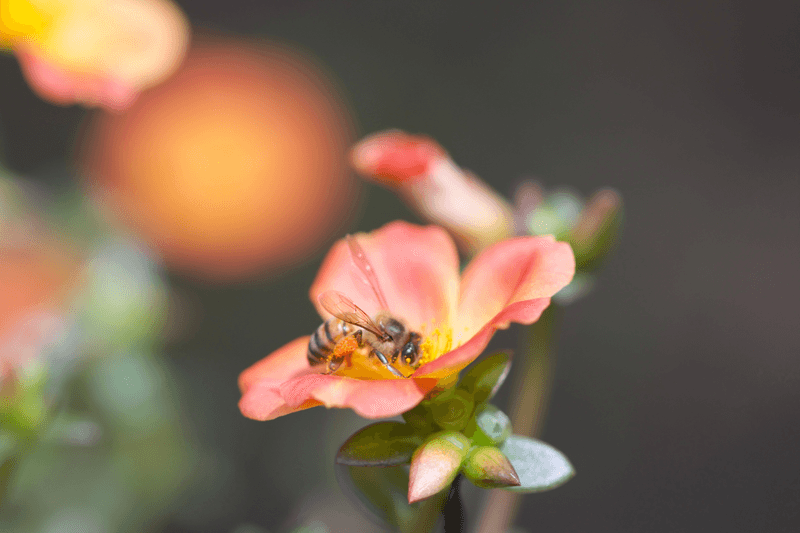
Look down at your comfy cotton t-shirt – you might be wearing something bees helped create! While cotton can self-pollinate, bee pollination significantly increases yield and quality.
Studies show bee-pollinated cotton produces more cotton per acre and better fiber quality. Farmers who encourage bee activity around cotton fields often see 15-20% higher yields compared to fields with limited pollinator access.
8. Almond Miracle Workers
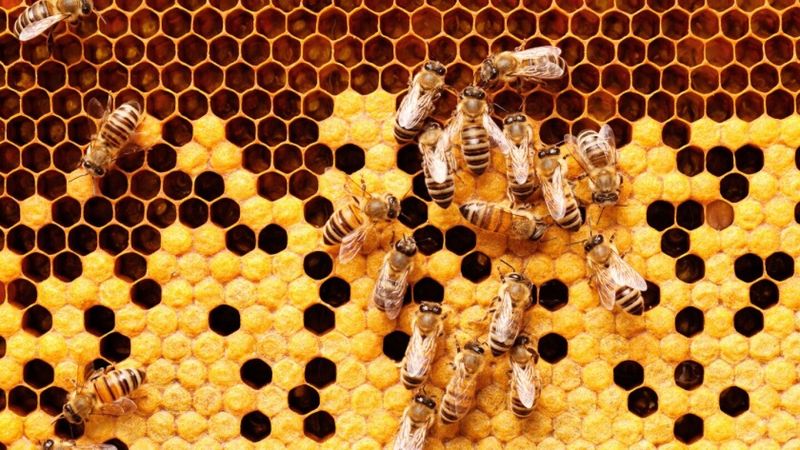
California’s almond industry would collapse without bees. Every February, almond trees burst into bloom, requiring over 2 million beehives – nearly 85% of all commercial hives in the U.S. – to pollinate them.
Each almond you eat exists because a bee visited an almond blossom. The relationship is so critical that almond growers pay millions annually to have beehives transported to their orchards during the brief flowering period.
9. Berry Bounty Providers
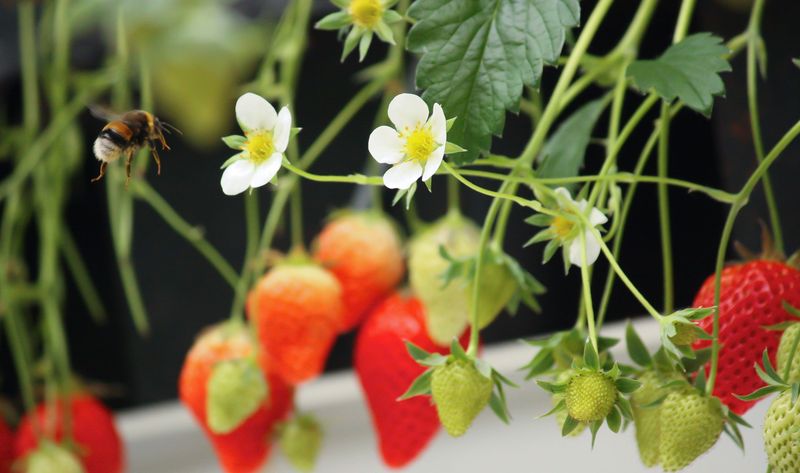
Strawberries, blueberries, raspberries, and blackberries all depend on bee pollination for quality fruit production. Bees don’t just make these fruits possible – they make them better!
Properly bee-pollinated berries are larger, more uniform in shape, and have better shelf life than those with poor pollination. Wild bees are especially effective berry pollinators, with some native bee species being up to three times more efficient than honeybees.
10. Ecosystem Balancers
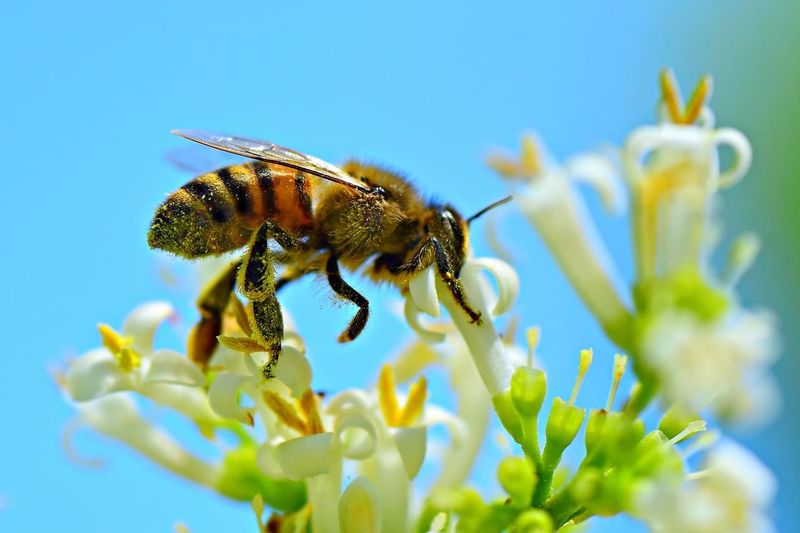
Bees support plant diversity far beyond our food crops. They pollinate wildflowers and native plants that provide habitat and food for countless wildlife species.
When bee populations decline, entire ecosystems suffer as plant reproduction falters. Many birds, small mammals, and other insects depend on bee-pollinated plants for food and shelter, creating a complex web of life with bees at a crucial center point.
11. Vegetable Variety Sustainers
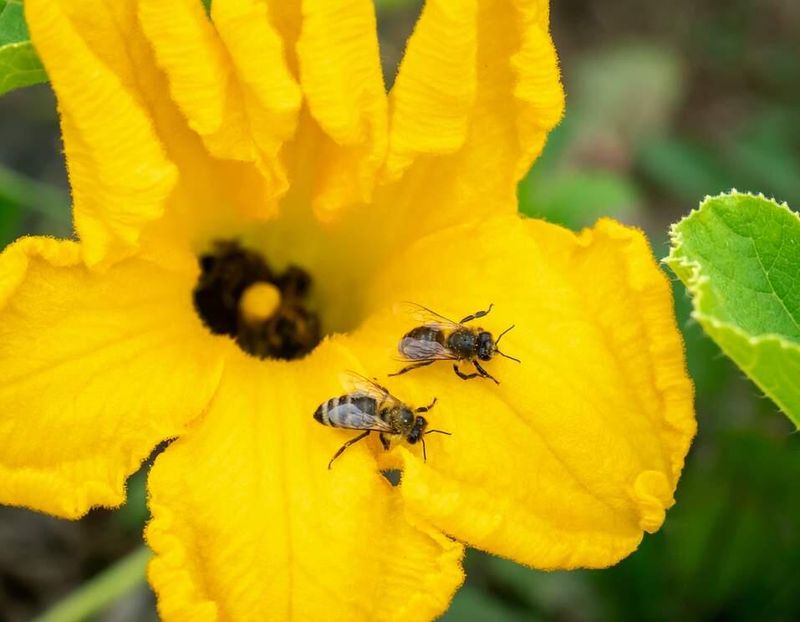
Squash, cucumbers, pumpkins, and melons all come from plants with separate male and female flowers. Bees must visit both flower types for successful pollination and fruit development.
Zucchini farmers know their crops are completely dependent on bee visits. Without adequate pollination, these plants produce deformed fruits or none at all. Home gardeners often hand-pollinate when bee populations are low, a time-consuming task commercial farmers cannot practically undertake.
12. Honey Healers
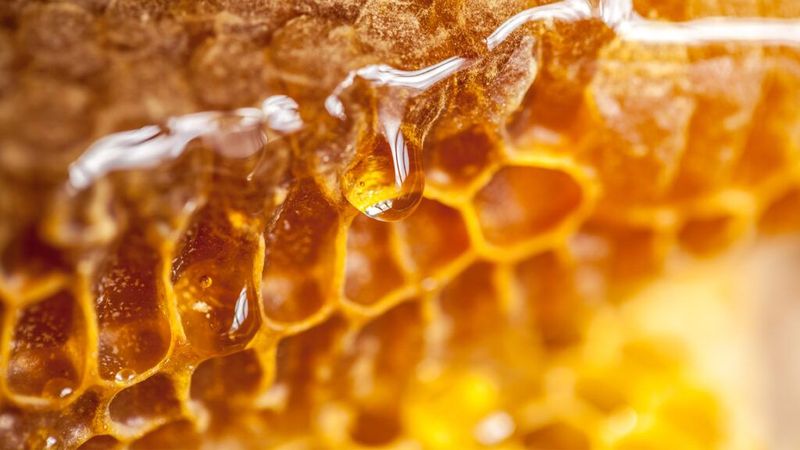
Beyond pollination, bees give us honey – a remarkable food with antibacterial properties that never spoils. Ancient Egyptians used honey for wound treatment, and modern medicine still recognizes its healing benefits.
Raw honey contains enzymes, antioxidants, and nutrients that support immune function. Local honey may even help some people build tolerance to seasonal allergies, though more research is needed to confirm this popular belief.
13. Biodiversity Guards
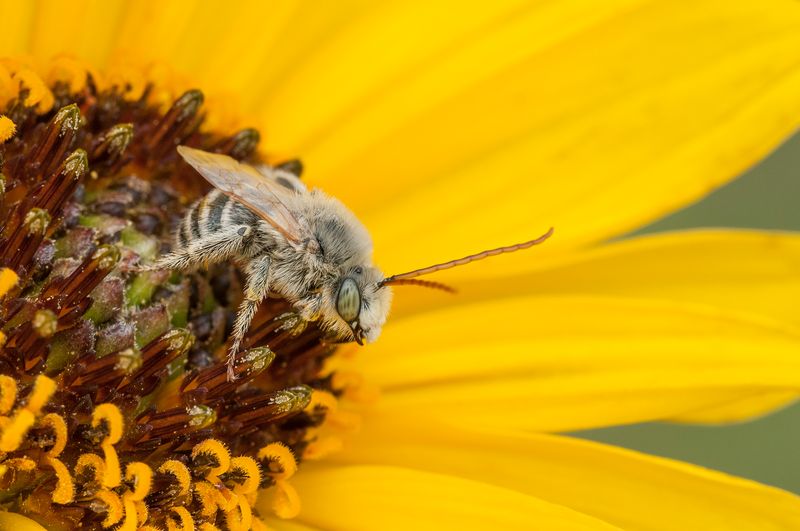
Bees maintain genetic diversity in plant populations through cross-pollination. This genetic mixing strengthens plant species against diseases, pests, and changing climate conditions.
Different bee species specialize in pollinating different plants. Losing even one bee species can leave certain plants vulnerable. The squash bee, for example, is perfectly adapted to pollinate pumpkins and squash, visiting flowers before dawn when most other bees are still in their hives.
14. Future Food Security Heroes
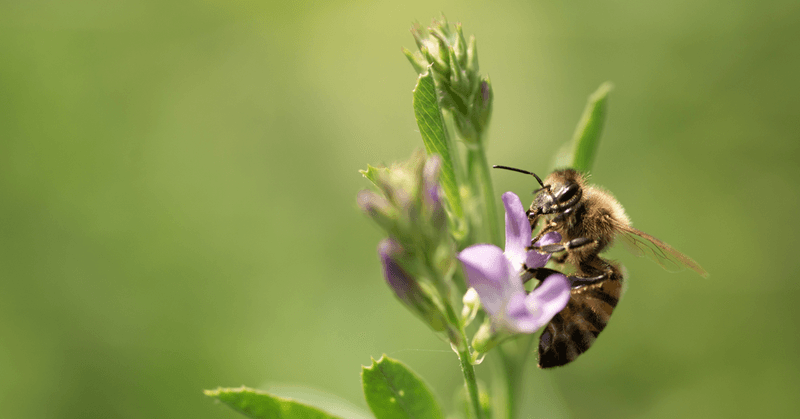
As global population grows, our food needs increase dramatically. Bees are essential partners in meeting this challenge, potentially helping boost crop yields by up to 40% when properly managed.
Scientists are studying how to better support bee populations through habitat conservation and reduced pesticide use. Some farmers now plant bee-friendly flower strips alongside crops, creating pollinator highways that benefit both bees and agricultural production.

